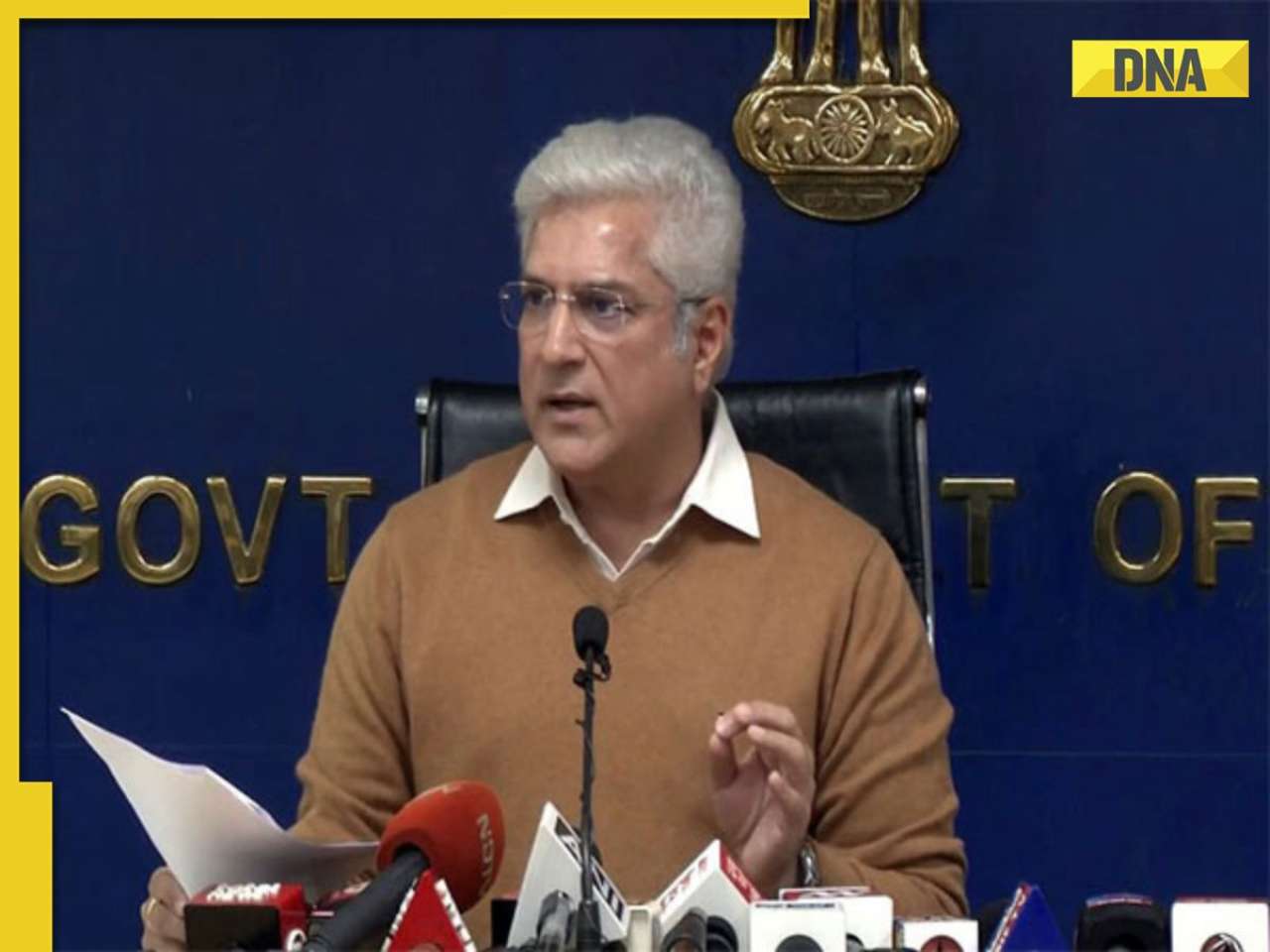Researchers found that use of statins substantially reduced the risk of revision after hip replacement surgery, indicating that the biological effects of statins may play a role in the sustainability of hip implants.
Cholesterol-lowering drugs statins may play an important role in decreasing complications among patients undergoing total hip replacement (THR), according to a new study.
The study has been published in the May 2010 issue of The Journal of Bone and Joint Surgery (JBJS).
"We found that use of statins substantially reduced the risk of revision after hip replacement surgery, indicating that the biological effects of statins may play a role in the sustainability of hip implants," said Theis Thillemann, MD, fellow in the department of orthopaedic surgery, Aarhus University Hospital, Denmark.
Using records from the Danish Hip Arthroplasty Registry, a national database of patients who had hip replacement, Dr Thillemann and his colleagues evaluated the effect of statin use on the need for revision surgery and found that patients who were taking statins for cholesterol control postoperatively had a significantly lower risk of revision during the 10-year period following THR. In addition, the researchers noted the risk of revision decreased with longer use of the statins.
"In hip replacement surgery, nearly 80 percent of patients are older than 60 years," he noted. "As a result, many of these patients have chronic medical diseases for which they are taking medicine. Although it's recognized that many of these drugs affect bone metabolism, currently there is limited information on the implications of other medical treatments on implant survival after THR."
"The survival of a hip implant is related to many different mechanisms," Dr Thillemann noted. "Statins have been associated with improved bone metabolism, improved anti-inflammatory effects and improved prognosis after infections," added Dr Thillemann.
![submenu-img]() Verantes Living Awarded as India’s No.1 Stainless Steel Modular Kitchen Brand
Verantes Living Awarded as India’s No.1 Stainless Steel Modular Kitchen Brand![submenu-img]() Narayana Murthy’s Infosys set to invest Rs 170000000 in this startup
Narayana Murthy’s Infosys set to invest Rs 170000000 in this startup![submenu-img]() 'Towards reducing pollution..': Delhi govt approves replacement, induction of electric vehicles in 'Gramin Sewa'
'Towards reducing pollution..': Delhi govt approves replacement, induction of electric vehicles in 'Gramin Sewa'![submenu-img]() Discover Stainless France, the Leading Supplier of Cobalt Chrome
Discover Stainless France, the Leading Supplier of Cobalt Chrome![submenu-img]() Kritika Kamra says men should take responsibility for fighting sexism: 'There's a thin line between...'
Kritika Kamra says men should take responsibility for fighting sexism: 'There's a thin line between...'![submenu-img]() 'बांधा, कपड़े उतारे, छाती पर लात मारी, छेड़छाड़ की'..., Army officer की मंगेतर के Odisha पुलिस पर गंभीर आरोप
'बांधा, कपड़े उतारे, छाती पर लात मारी, छेड़छाड़ की'..., Army officer की मंगेतर के Odisha पुलिस पर गंभीर आरोप![submenu-img]() Haryana Election 2024: कांग्रेस से कौन होगा सीएम फेस? जानें क्या है पार्टी की रणनीति
Haryana Election 2024: कांग्रेस से कौन होगा सीएम फेस? जानें क्या है पार्टी की रणनीति![submenu-img]() शादी के बाद पहली बार एयरपोर्ट पर स्पॉट हुए Aditi Rao Hydari और Siddharth, पैपराजी ने कर दी ये खास डिमांड
शादी के बाद पहली बार एयरपोर्ट पर स्पॉट हुए Aditi Rao Hydari और Siddharth, पैपराजी ने कर दी ये खास डिमांड![submenu-img]() Chennai News : हथौड़े से मारा, शरीर को कई हिस्सों में काटा, पैसे के विवाद में क्लाइंट ने कर दी Sex Worker की हत्या
Chennai News : हथौड़े से मारा, शरीर को कई हिस्सों में काटा, पैसे के विवाद में क्लाइंट ने कर दी Sex Worker की हत्या![submenu-img]() Salman Khan की सिक्योरिटी में हुई चूक, कार का पीछा करने वाले बाइक सवार के खिलाफ केस दर्ज
Salman Khan की सिक्योरिटी में हुई चूक, कार का पीछा करने वाले बाइक सवार के खिलाफ केस दर्ज![submenu-img]() Ford to return to India after 2 years with reopening of....
Ford to return to India after 2 years with reopening of....![submenu-img]() Maruti Suzuki launches new Swift CNG, check price, mileage, other features
Maruti Suzuki launches new Swift CNG, check price, mileage, other features![submenu-img]() ‘30 LPA, 3BHK, no in-laws’: Woman earning Rs 1.32 lakh salary lists demands for future husband, netizens say...
‘30 LPA, 3BHK, no in-laws’: Woman earning Rs 1.32 lakh salary lists demands for future husband, netizens say...![submenu-img]() In a big EV push, Centre launches Rs 10900 crore PM E-Drive scheme to replace…
In a big EV push, Centre launches Rs 10900 crore PM E-Drive scheme to replace…![submenu-img]() World’s longest car has helipad, swimming pool, mini-golf course, can seat over…; it cost…
World’s longest car has helipad, swimming pool, mini-golf course, can seat over…; it cost…![submenu-img]() Meet IPS officer who has resigned after serving for 18 yrs due to...
Meet IPS officer who has resigned after serving for 18 yrs due to...![submenu-img]() Meet Indian man, who got hired whopping Rs 12000000 crore salary job, not from IIT, IIM he is...
Meet Indian man, who got hired whopping Rs 12000000 crore salary job, not from IIT, IIM he is...![submenu-img]() Meet woman who left medical career for UPSC exam , became IPS with AIR 165 then left job due to...
Meet woman who left medical career for UPSC exam , became IPS with AIR 165 then left job due to...![submenu-img]() Meet man, who left NDA due to depression, then cracked UPSC exam to become IAS officer, his AIR was...
Meet man, who left NDA due to depression, then cracked UPSC exam to become IAS officer, his AIR was...![submenu-img]() Meet youngest CEO of India, who created first app at 9, began his own company at 13, now he is…
Meet youngest CEO of India, who created first app at 9, began his own company at 13, now he is…![submenu-img]() Congress President Kharge Slams & Opposes 'One Nation, One Election' Proposal, Calls It Impractical
Congress President Kharge Slams & Opposes 'One Nation, One Election' Proposal, Calls It Impractical![submenu-img]() Why 'One Nation One Election' Is important? Ashwini Vaishnaw Explains After It Gets Cabinet Approval
Why 'One Nation One Election' Is important? Ashwini Vaishnaw Explains After It Gets Cabinet Approval![submenu-img]() Jammu Kashmir Assembly Election 2024 Phase 1 Highlights: What Happened In First phase In J&K Polls?
Jammu Kashmir Assembly Election 2024 Phase 1 Highlights: What Happened In First phase In J&K Polls?![submenu-img]() One Nation One Election: Centre Clears Proposal, Bill To Be Introduced In Winter Session | Modi 3.0
One Nation One Election: Centre Clears Proposal, Bill To Be Introduced In Winter Session | Modi 3.0![submenu-img]() Haryana Elections 2024: Is BJP Set To Lose In Haryana? Anti-Incumbency And Other Factors Analysed
Haryana Elections 2024: Is BJP Set To Lose In Haryana? Anti-Incumbency And Other Factors Analysed![submenu-img]() Verantes Living Awarded as India’s No.1 Stainless Steel Modular Kitchen Brand
Verantes Living Awarded as India’s No.1 Stainless Steel Modular Kitchen Brand![submenu-img]() Narayana Murthy’s Infosys set to invest Rs 170000000 in this startup
Narayana Murthy’s Infosys set to invest Rs 170000000 in this startup![submenu-img]() Discover Stainless France, the Leading Supplier of Cobalt Chrome
Discover Stainless France, the Leading Supplier of Cobalt Chrome![submenu-img]() ITR filing: Haven’t received your income tax refund yet? Here’s what you should do
ITR filing: Haven’t received your income tax refund yet? Here’s what you should do![submenu-img]() Meet ‘delivery boy’ who beats Mukesh Ambani in world’s billionaire list, his net worth is…
Meet ‘delivery boy’ who beats Mukesh Ambani in world’s billionaire list, his net worth is…![submenu-img]() In pics: Saiyami Kher conquers Ironman triathlon in Germany, swims, cycles, runs to complete endurance races
In pics: Saiyami Kher conquers Ironman triathlon in Germany, swims, cycles, runs to complete endurance races![submenu-img]() Meet IAS officer, who cracked in UPSC exam along with full-time job, her AIR was...
Meet IAS officer, who cracked in UPSC exam along with full-time job, her AIR was...![submenu-img]() In pics | India vs Bangladesh 1st Test, Day 1
In pics | India vs Bangladesh 1st Test, Day 1![submenu-img]() From Mechuka to Hayuliang village: Explore lesser-known destinations of Arunachal Pradesh
From Mechuka to Hayuliang village: Explore lesser-known destinations of Arunachal Pradesh![submenu-img]() From Simlipal National Park to Mahendragiri: Top 6 hidden gems to discover in Odisha
From Simlipal National Park to Mahendragiri: Top 6 hidden gems to discover in Odisha![submenu-img]() 'Towards reducing pollution..': Delhi govt approves replacement, induction of electric vehicles in 'Gramin Sewa'
'Towards reducing pollution..': Delhi govt approves replacement, induction of electric vehicles in 'Gramin Sewa'![submenu-img]() More trouble for ex-RG Kar principal Sandip Ghosh, Bengal medical body now...
More trouble for ex-RG Kar principal Sandip Ghosh, Bengal medical body now...![submenu-img]() Tirupati Laddu row: Lab report confirms prasada contains beef fat, fish oil
Tirupati Laddu row: Lab report confirms prasada contains beef fat, fish oil![submenu-img]() Delhi: Water supply to be shut down in capital for 12 hours tomorrow due to…; check list of affected areas
Delhi: Water supply to be shut down in capital for 12 hours tomorrow due to…; check list of affected areas![submenu-img]() FATF says India faces severe 'terrorist financing threats' from...
FATF says India faces severe 'terrorist financing threats' from...











































)
)
)
)
)
)
)
)
)
)
)
)
)
)





)
)
)
)
)
)